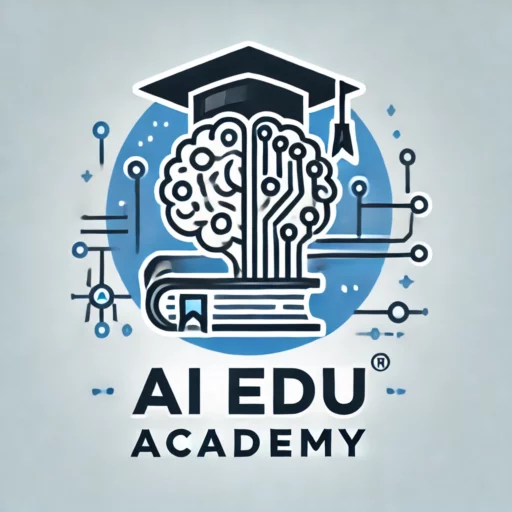Introduction: The Rise of AI in the Job Market
Artificial Intelligence (AI) isn’t just a buzzword anymore—it’s a booming industry reshaping how we live, work, and learn. From powering voice assistants to helping diagnose diseases, AI is embedded in everyday tech. And with that surge comes a flood of new and exciting career paths.
Thinking about diving into the AI world? Let’s unpack the 9 in-demand AI job titles you should know and explore how you can get your foot in the door.
Why AI Careers Are Booming
Impact of AI on Various Industries
AI is revolutionizing everything from finance to healthcare to education. Companies are scrambling to hire experts who can build smarter systems, automate tasks, and unlock data-driven insights.
AI and the Future of Work
Whether it’s creating recommendation engines or designing autonomous vehicles, AI professionals are the architects of the future. No wonder the demand is skyrocketing!
Want to understand how AI is influencing education too? Check out AI in Education Trends to see what’s changing in learning systems.
1. AI Engineer
Role & Responsibilities
AI Engineers build and deploy models that simulate human intelligence. They work on everything from speech recognition to robotics.
Key Skills Required
You’ll need strong coding chops (Python, TensorFlow, PyTorch), a background in algorithms, and a deep understanding of math and statistics.
Where to Learn
Explore foundational resources at AI Learning Basics or enroll in structured programs via AI Courses & Certifications.
2. Machine Learning Engineer
What They Do
These specialists focus on algorithms that allow systems to learn from data. Whether it’s facial recognition or fraud detection, they build models that improve with experience.
Common Tools & Platforms
Scikit-learn, Keras, and cloud platforms like AWS or Azure are staples in a Machine Learning Engineer’s toolbox.
Related read: AI Tools & Software
3. Data Scientist
The Heart of AI Decision-Making
Data Scientists collect, clean, and interpret massive data sets to guide AI systems. They’re part detective, part mathematician.
Must-Have Skills
Strong statistical analysis, data visualization (like Tableau), and coding skills are essential.
Looking to start from zero? Our guide on AI for Beginners is perfect for newbies.
4. AI Research Scientist
Cutting-Edge Innovation
These pros live on the edge of AI advancement. Whether working on general intelligence or new neural network architectures, they push boundaries.
Education and Background Needed
Usually, a Ph.D. or academic research experience is required. But don’t worry—your journey can start with AI Basics and scale up from there.

5. Computer Vision Engineer
How Vision Powers AI Systems
Computer Vision Engineers develop systems that “see”—from facial recognition to autonomous navigation.
Common Use Cases
Think retail analytics, medical imaging, and even farming drones that detect crop diseases.
Explore more on the future of AI software in Artificial Intelligence Software.
6. NLP Engineer (Natural Language Processing)
Role in Language & Text Processing
NLP Engineers teach machines to understand and generate human language. Chatbots, translation tools, and sentiment analysis fall under this role.
Growing Demand in Tech & Education
With AI’s growing presence in EdTech, NLP is critical. Check out the AI in EdTech section to see how it’s transforming classrooms.
7. Robotics Engineer
Where Robotics Meets AI
These engineers design, build, and test robots that are smart and adaptive.
Real-World Applications
From manufacturing bots to Mars rovers, the possibilities are endless. Robotics Engineers often collaborate with AI experts to integrate decision-making into mechanical systems.
Curious about where to begin? The AI Development tag has loads of insights.
8. AI Product Manager
Bridging Tech and Business
AI Product Managers translate complex machine learning outcomes into real-world products. They align the tech team’s efforts with market needs.
Key Responsibilities
They define the product roadmap, coordinate between stakeholders, and ensure user-centric development.
Great read if you want to mix business and tech: Career in AI
9. AI Ethicist
The Human Side of AI Development
As AI grows, so does the need for ethical oversight. AI Ethicists address questions of bias, privacy, and safety.
Skills That Make a Great AI Ethicist
Philosophical thinking, policy knowledge, and tech literacy are musts. AI Ethicists ensure machines are not just smart—but fair and just.
Want to shape the future responsibly? Learn more through Artificial Intelligence Career
How to Get Started in AI Careers
Learn the Basics First
Before diving into specialized roles, master the foundations. Start with Python, basic machine learning concepts, and real-world projects.
Recommended: Online AI Courses and AI Basics
Best Courses and Certifications
Boost your resume with programs from AI Courses & Certifications. Look for hands-on and project-based curriculums to make your profile shine.
Conclusion
There’s no denying it—AI is the future, and the future is now. Whether you’re a techie at heart or someone who loves big-picture thinking, there’s a role in AI just for you. Start small, stay curious, and remember—every AI expert started somewhere. So why not you?
Explore the full ecosystem of learning at AI Edu Academy to kickstart your journey!
FAQs
1. What is the most in-demand AI job title right now?
The role of Machine Learning Engineer is currently one of the hottest in the job market due to its wide applicability.
2. Do I need a degree to work in AI?
Not necessarily! While degrees help, many roles value practical experience and certifications from online AI courses.
3. How long does it take to start a career in AI?
It depends on your background, but 6–12 months of focused learning can land you an entry-level role.
4. Are AI jobs remote-friendly?
Absolutely! Many companies offer remote roles, especially in development, data science, and NLP.
5. Is AI only for programmers?
Nope! There are roles in product management, ethics, design, and research that don’t require heavy coding.
6. What are the best AI tools to learn?
Tools like TensorFlow, PyTorch, and scikit-learn are essential. Learn more at AI Tools & Software.
7. How can I stay updated on AI trends?
Follow blogs, join AI communities, and check out AI in Education Trends regularly.
